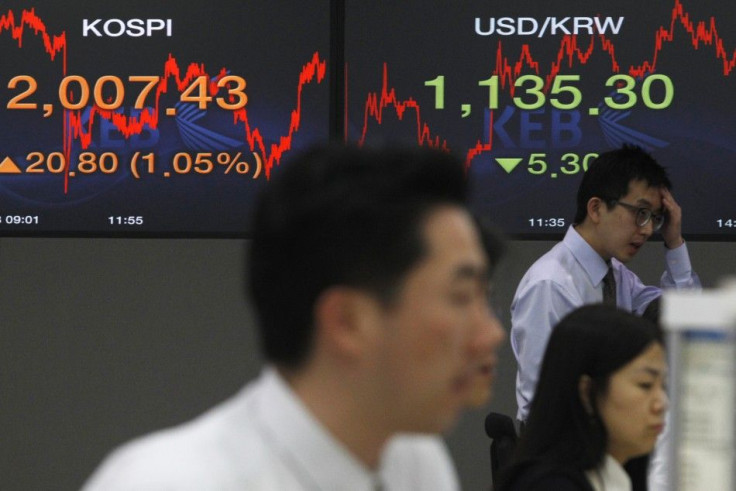South Korea Likely To Announce Monetary Easing Measures In September

With South Korea's economy continuing to slowdown, investors feel that the Bank of Korea (BoK) will be under pressure to announce monetary easing measures at the next meeting in September.
The BoK's announcement this week to keep its interest rates unchanged came as a surprise to investors who were expecting monetary easing measures to rejuvenate the country's economic growth. Given that both local and global conditions have been weak over the past month and because South Korea's headline consumer price inflation fell below the central bank's 2-4 percent target range in July, market players were expecting a cut in the interest rate. But the Bok has decided to hold its policy rate at 3 percent.
Market participants still feel that chances are high that they will cut rates at the next meeting in September. The worse-than-expected deterioration in economic conditions definitely puts pressure on the BOK to add stimulus. "We believe that global growth will continue to disappoint and that more policy stimulus will be needed soon to support Korea's economy. The upshot is that we have pencilled in a 25bp cut in September," said Sukhy Ubhi, an economist at Capital Economics.
Last month, South Korea's central bank cut the interest rate for the first time in over three years in a move to stimulate the faltering economic growth of the country. The BoK had decided to cut the interest rate by 25 basis points to 3 percent.
While cutting the interest rate, the central bank had said that growth was likely to be weaker than it had previously expected, with a negative output gap persisting for a while. South Korea's economic growth forecast was reduced by the central bank to 3 percent this year, down from the 3.5 percent prediction made in April.
In this week's meeting, the central bank focused on Europe in its accompanying statement, noting the deepening economic slowdown there and the risks that the euro zone crisis poses for the rest of the world. Investors sense that the euro zone crisis is likely to escalate again this year. They also sense that the global growth will remain subdued not just for the remainder of 2012 but also in 2013, led by a prolonged recession in the euro zone.
So there is an increasing possibility that the BoK will have to further cut the interest rate this year. However, it is also critical to have the monetary easing at the right time as advance action may be poorly targeted and ineffective and may need to be repeated. "The best timing for rate cuts is in August-September, in our view, when growth and inflation numbers both reach the bottom," said the DBS Bank in a note.
© Copyright IBTimes 2024. All rights reserved.




















